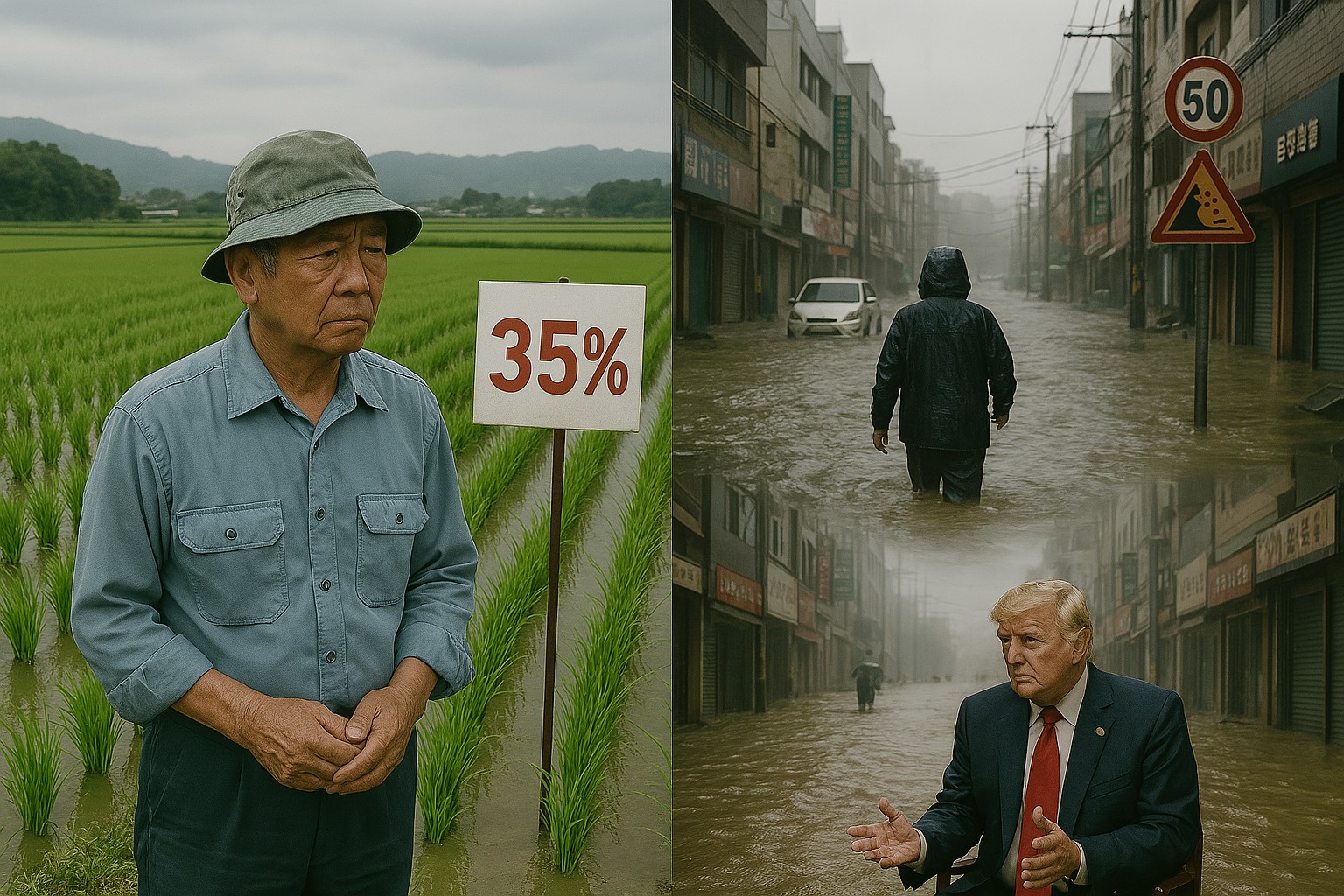East Asia is grappling with dual crises this week: Japan’s escalating tariff standoff with the U.S. and South Korea’s deadly floods that have displaced thousands. Both events underscore the region’s vulnerability to external shocks and internal mismanagement, raising questions about long-term strategic resilience.
Japan’s Tariff Turbulence
- President Trump’s threat to impose new tariffs on Japanese rice exports has rattled Tokyo, prompting Prime Minister Ishiba to declare that Japan will “defend its agricultural sovereignty at all costs.”
- The proposed tariffs—up to 35% on premium rice varieties—are part of Trump’s push to rebalance East Asian trade.
- Japanese officials are scrambling to secure exemptions, while domestic farmers warn of a “death blow” to rural economies already strained by aging demographics and land scarcity.
South Korea’s Flood Fallout
- Record rainfall battered South Korea’s southern provinces, killing at least two people and forcing over 1,000 evacuations.
- Landslides and infrastructure failures have reignited criticism of Seoul’s urban planning and emergency response systems.
- The government’s decision to pull a crash report on the December Jeju Air disaster after protests from victims’ families has further eroded public trust.
🧭 Strategic Implications
- Supply Chain Risk: Japan’s rice tariffs and South Korea’s infrastructure fragility threaten key export corridors and manufacturing hubs.
- Political Pressure: Both governments face mounting pressure to assert national integrity amid foreign influence and domestic unrest.
- Regional Coordination: Analysts warn that East Asia’s lack of unified response mechanisms exposes it to cascading crises.
Commentary
Voices argue that East Asia’s current woes stem from overreliance on global trade norms and technocratic governance. “Japan must stop playing defense and start asserting its economic identity,” said economist Hiroshi Tanaka. “South Korea needs to rebuild with sovereignty in mind—not just GDP metrics.”




